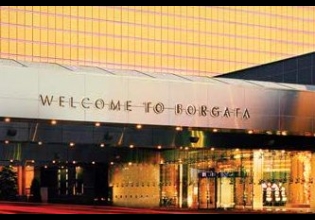
After more than 30 months of wrangling over the case, a court in New Jersey has denied the appeal of a group of players who took part in the “Chipgate,” reaffirming the decision by the casino and state gaming regulators as to how to settle the tournament.
In a hearing in front of the Appeals justices, the New Jersey Department of Gaming Enforcement and the Borgata, the Atlantic City casino where the situation took place, maintained that the final decision they had rendered on the case (more on this in a moment) was the fairest way to handle what was a highly unique situation. Attorneys representing as many as 4000 players maintained that the original decision was flawed and that the DGE and the Borgata should have included the players in making any decision. A previous court had dismissed the case, but the appeal to the three-judge Appellate court was heard and a decision rendered earlier last week.
After hearing these arguments last Monday, that three judge panel consisting of New Jersey Appellate Judges Jack Sabatino, Allison Accurso and Amy O’Connor, ruled that the decision by the New Jersey DGE and the Borgata “reasonably chose to ensure that every entrant possibly affected by Lusardi’s illegal conduct got their entry fee back; that prize winners kept their prizes and that the remaining 27 players shared equally in the remaining funds without unfairly penalizing any,” the justices wrote in their unanimous (per curiam) decision. “Although the plaintiffs’ disappointing experience in this aborted tournament is regrettable, the Division’s response to the situation was fair, and plaintiffs present no legal basis for their claims seeking further enhancement of their recovery,” the panel decided.
For those that might have forgotten, the January 2014 opening event of the Borgata Winter Poker Open was set to be a huge tournament. The $560 buy-in event had several starting days in an attempt to best a guaranteed prize pool of $2 million. Eventually, the tournament would shatter that mark in building up a $2.4 million prize pool. Prior to the start of Day 2 of the tournament, however, Borgata officials halted the tournament (and then eventually canceled it) that had reached the final three tables.
After a couple of days of investigation by the Borgata and New Jersey gaming officials, the problem eventually came to light. A player in the tournament, Christian Lusardi, had introduced approximately 800,000 in fake tournament chips into the proceedings. This was discovered after Lusardi, concerned that he was about to be nabbed for the crime, dumped another 2.7 million in counterfeit chips down the commode of his hotel room at Harrah’s in Atlantic City and clogged the pipes.
Lusardi was quickly apprehended and sentenced to jail for five years in 2015 (not for this crime, however, but for a federal violation of piracy and copyright laws), but the players who were left in the tournament – and those that had taken part in the event – were left in the cold as to how to finish off the tournament.
Soon after the tournament had been officially canceled by the Borgata, a group of players who took part in the event filed a class action lawsuit against the Borgata. The player group charged that the casino had inadequate staff and security for the tournament, that the Borgata ignored player comments regarding the fake chips and that the casino didn’t conduct a chip count on a regular basis, which would have exposed the Lusardi chip scam sooner. The lawsuit looked to have all entry fees refunded and travel and lodging expenses recouped for the players.
The lawsuit gained ground when the Borgata and New Jersey Division of Gaming Enforcement released their decision on the conclusion of the tournament. In April 2014, it was determined that the Borgata would have to pay roughly 2150 players their $560 entry fee; that the remaining 27 players would divvy up the remaining prize pool to the tune of $19,323 and that those who had cashed in the event got no additional money.
Attorneys for the players have not indicated at this time whether they will appeal to the New Jersey Supreme Court for further adjudication or not.























